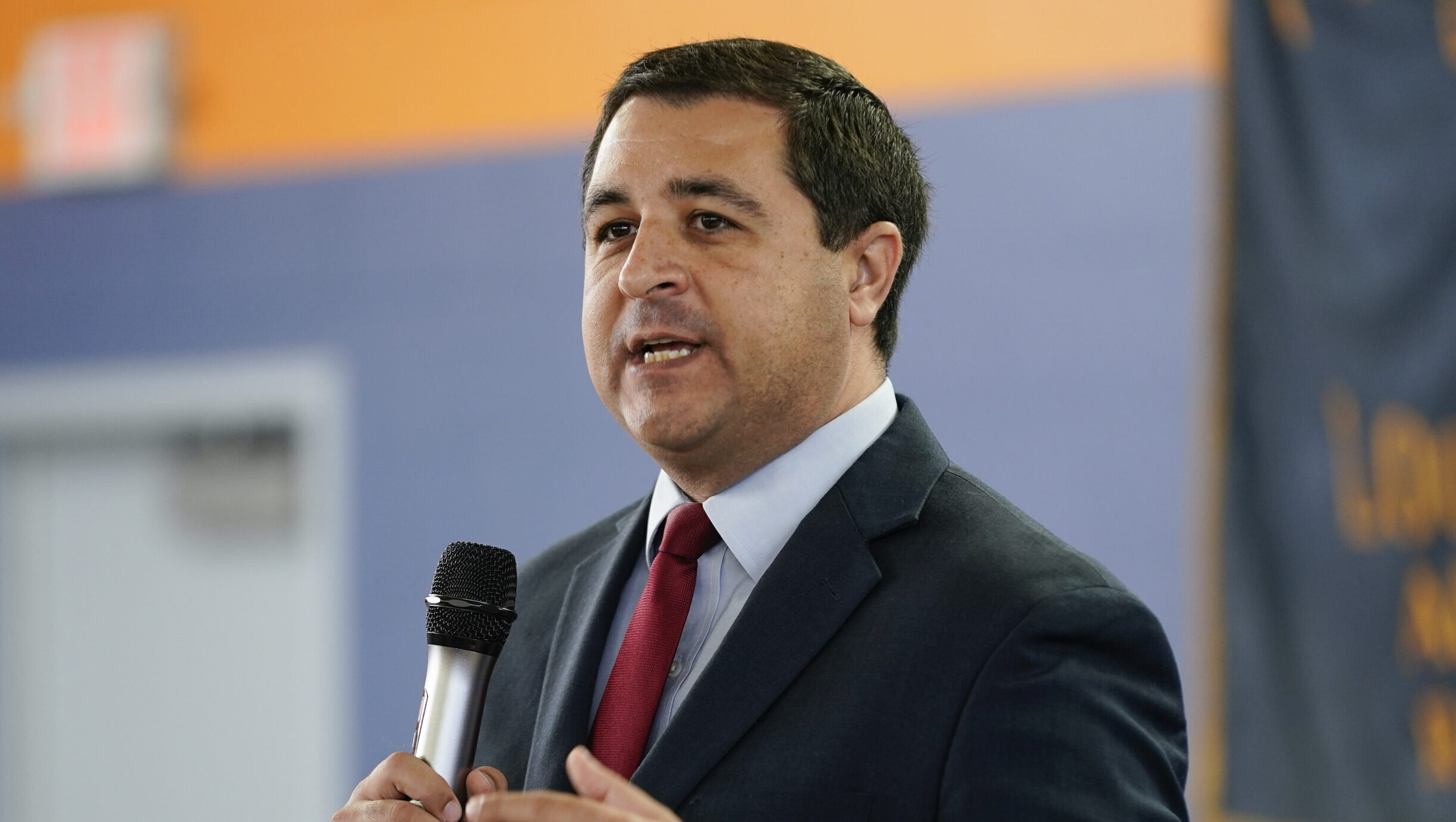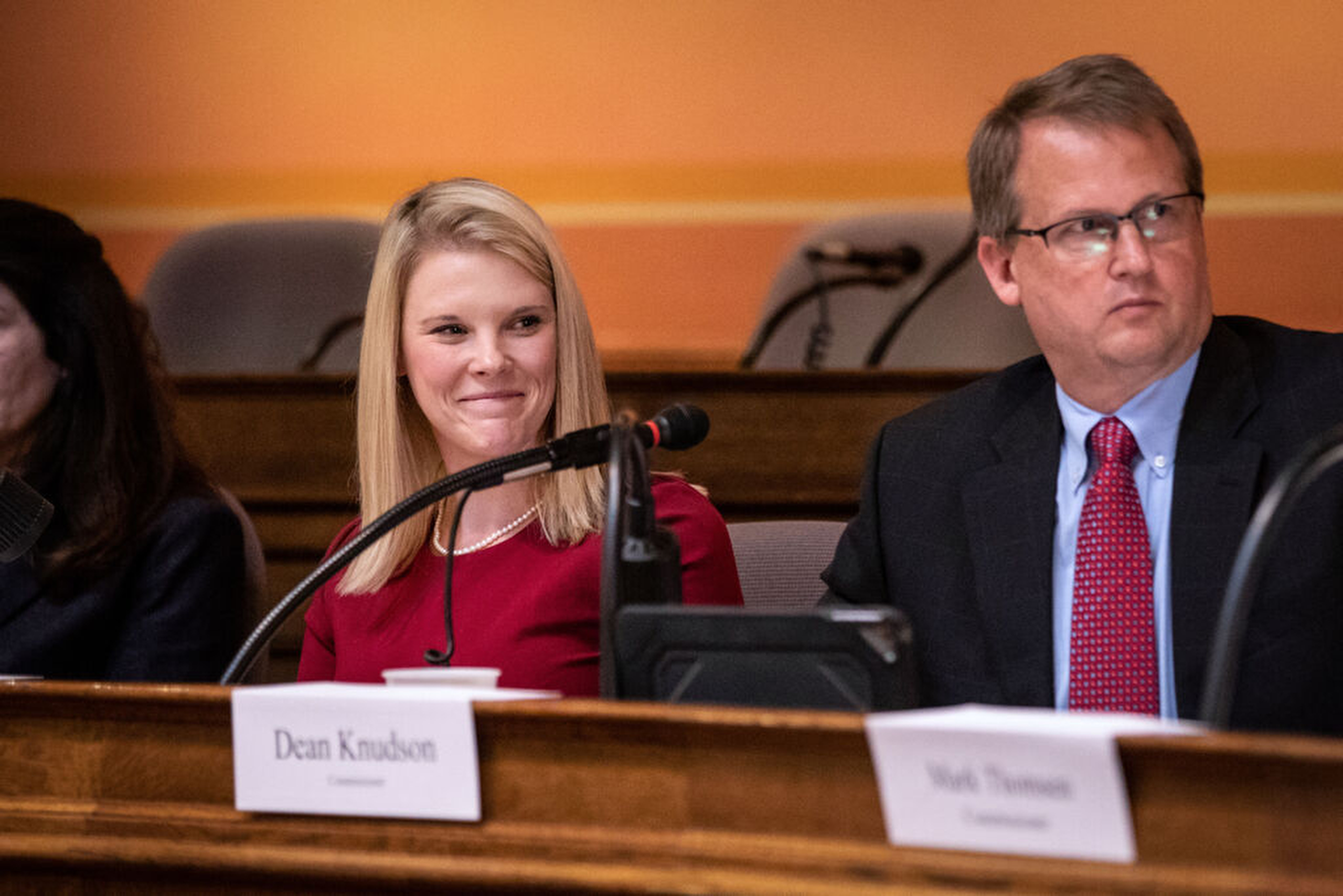Shortly after Wisconsin Democrats swept statewide races in 2018, Republican lawmakers stripped powers from the incoming governor and attorney general in a “lame-duck” session. Six years later, a lawsuit challenging the GOP legislation continues and could soon be heard by the Wisconsin Supreme Court.
Weeks before leaving office, former Republican Gov. Scott Walker signed three fast-tracked bills into law in December 2018. One of the changes required incoming Democratic Attorney General Josh Kaul to get permission from the Legislature’s powerful Joint Finance Committee before filing civil suits on behalf of the state. It also gave the committee the final say over how to spend funds from state settlements.
The lame-duck laws have been litigated for years. Republicans have contended the law regarding settlements gave lawmakers “a seat at the table” in negotiations. Kaul has argued the Legislature “gave itself a throne.”
The ensuing standoff between Kaul and GOP lawmakers left multiple lawsuits in limbo. In 2020, the Wisconsin Supreme Court’s former conservative majority sided with Republicans when it found “in at least some cases” the Legislature can give itself the power to approve or reject civil cases prosecuted by the Department of Justice.
Stay informed on the latest news
Sign up for WPR’s email newsletter.
Things have changed since then. The Supreme Court now has a 4-3 liberal majority and Kaul is asking justices to decide whether the committee’s ability to approve or reject any DOJ civil cases or settlements is constitutional.
Kaul argues a 6-1 Supreme Court decision in July finding the finance committee violated the state constitution by blocking Evers from spending conservation funds already approved by the Legislature is “not meaningfully distinguishable” from the issues in his own lame-duck case.
He further contends the court “did not bless the constitutionality” of the lame-duck law in 2020, and lower courts have erred by citing it when ruling against him.
The Legislature has also sued Kaul, arguing the DOJ has unlawfully been depositing settlement funds into an account he controls rather than the state’s general fund. On Dec. 18, Wisconsin’s Second District Court of Appeals ruled against Kaul in a 2-1 decision.
Kaul has since appealed that decision to the Wisconsin Supreme Court and has claimed the lame-duck laws haven’t had any positive impact on the state.
“These statutes were passed in late 2018, and we’re now in late 2024,” Kaul told reporters. “So we look forward to getting resolution though. I do think it’s important to always note, these are really senseless laws that were passed by the Legislature.”
Bryna Godar is a staff attorney with the State Democracy Research Initiative at the University of Wisconsin Law School. She told WPR the lawsuits are the result of ongoing power struggles between Democrats and Republicans amid divided government.
She said the court’s July ruling in another lawsuit brought by Evers found lawmakers overstepped their bounds by restricting the executive branch, but she said the specifics of the lawsuits between Kaul and the Legislature are different.
“I do think that it’s helpful insofar as we know, that the justices may be open to revisiting the power of legislative committees, but I don’t think you can really draw a direct outcome in this case,” Godar said.
Godar said the power struggles between Republican-controlled legislatures and Democratic-controlled executive branches are not unique to Wisconsin. She pointed to North Carolina as the most recent example. There, state legislative Republicans passed a law Dec. 12, that diminishes the powers of the state’s newly elected Democratic governor, attorney general and superintendent of schools.
Wisconsin Public Radio, © Copyright 2025, Board of Regents of the University of Wisconsin System and Wisconsin Educational Communications Board.




